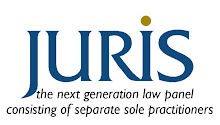Wednesday, November 10, 2010
General Counsel of Labor Board Issues Complaint Against Company Over Social Media Policy and the Firing of an Employee for Facebook Posts
The rise of social media websites has created a host of challenges for employers. An employee’s post about his or her job can lead to claims of defamation or harassment by co-workers or may reveal confidential information. For these and other reasons, employers increasingly are taking steps to regulate what employees can and cannot do on the Internet. The recent issuance of a complaint by the General Counsel of the National Labor Relations Board (“NLRB”) against an ambulance company, however, is a reminder that efforts by employers to police employees’ posts on social media websites may run afoul of the National Labor Relations Act, the federal labor law. Although federal labor law never before has been applied to social media sites, the General Counsel alleged in the complaint that the company’s blogging and Internet policy was illegal and that the company unlawfully fired an employee for posting critical comments about a supervisor on her personal Facebook site.
According to the complaint, the company maintained a blogging and Internet policy that prohibited employees from posting pictures of themselves which depict the company, its logo or its ambulances and from “making disparaging, discriminatory or defamatory comments when discussing the Company or the employee’s superiors, co-workers and/or competitors.” Because the NLRB has long held that employees have the right under federal labor law to criticize their employer, the General Counsel alleged that this policy was unlawful.
Further, the General Counsel alleged that the company unlawfully fired an employee, Dawnmarie Souza, for engaging in conduct protected by federal labor law. According to the complaint and a press release issued by the NLRB, Souza criticized her manager on her personal Facebook site, which prompted supportive comments from her co-workers. She then posted additional negative comments about the supervisor. The company suspended and then fired her for violating its blogging and Internet policy. The General Counsel alleged that Souza’s posts constituted protected, concerted activity under the National Labor Relations Act and that her termination was unlawful.
A hearing on the case is scheduled for January 2011, and ultimately the NLRB will decide whether the employer in fact violated federal labor law. If the NLRB finds against the company, the employer may be ordered to reinstate Souza with back pay.
The potential application of traditional labor law principles to posts on social media websites is a concern for both unionized and non-unionized employers. While Souza was represented by a labor union, this fact was irrelevant to the General Counsel’s allegations because both represented and unrepresented employees have rights under federal labor law. This means that all employers must be cautious when drafting policies which restrict employees’ conduct on the Internet. Even in the absence of a policy, employers must think twice before taking disciplinary action against an employee for an Internet post which is critical of the company or its managers.
Written by Brian P. Bialas.
Subscribe to:
Post Comments (Atom)



No comments:
Post a Comment